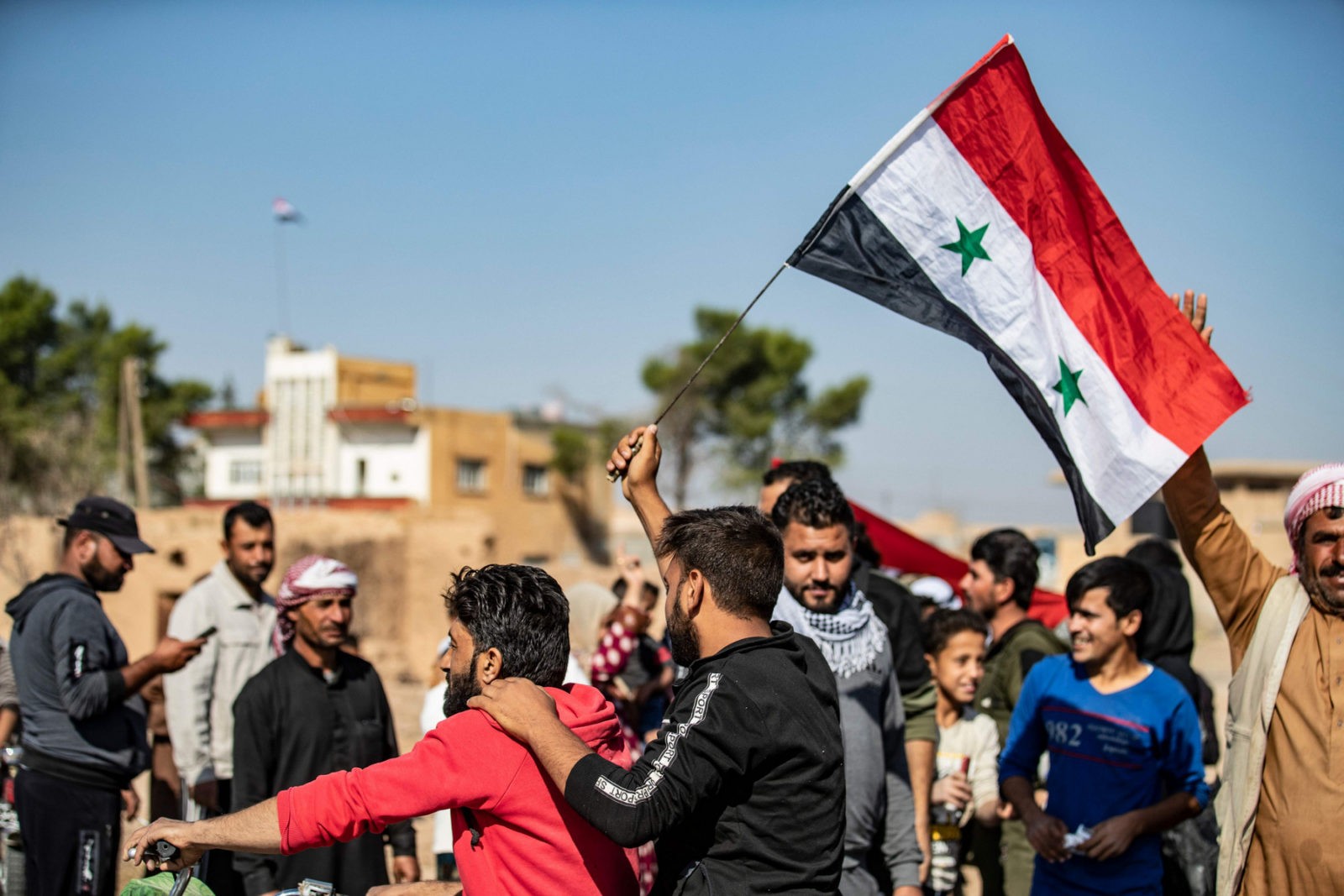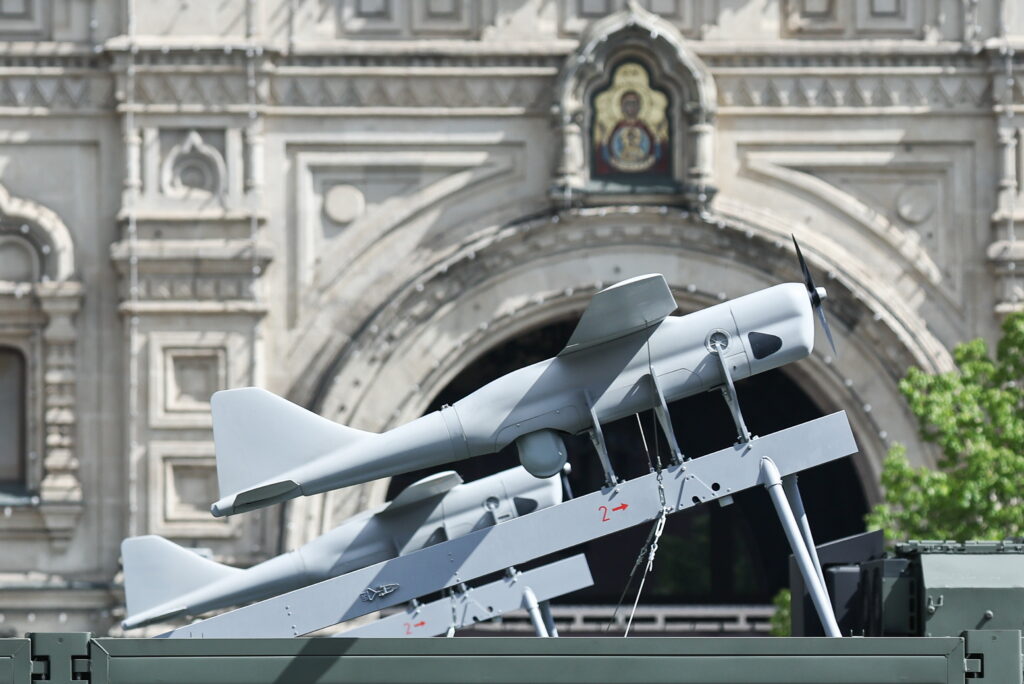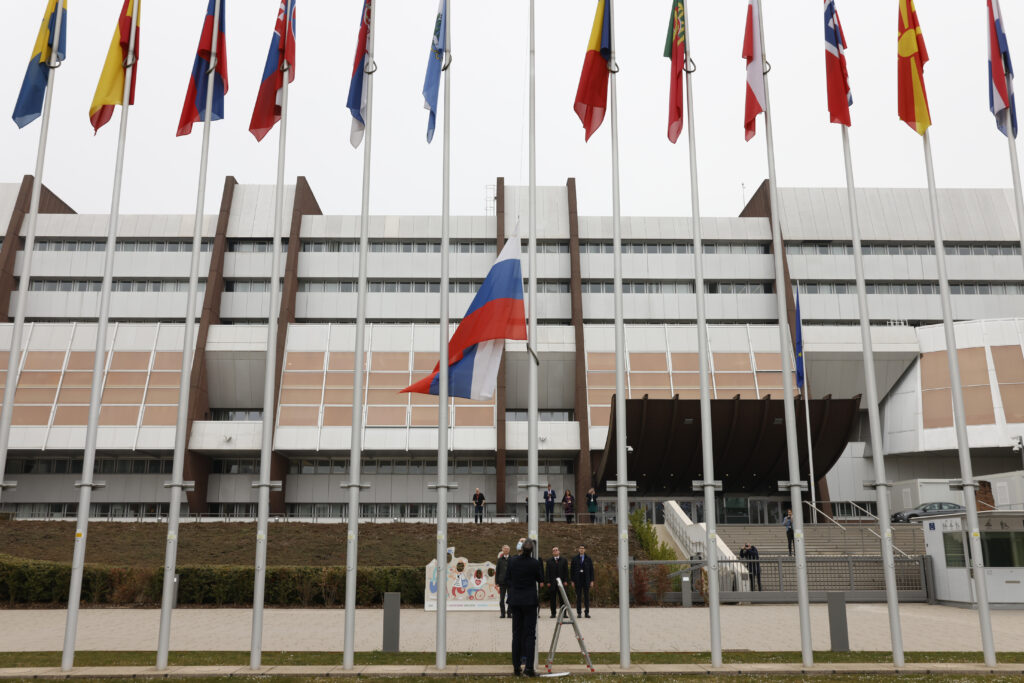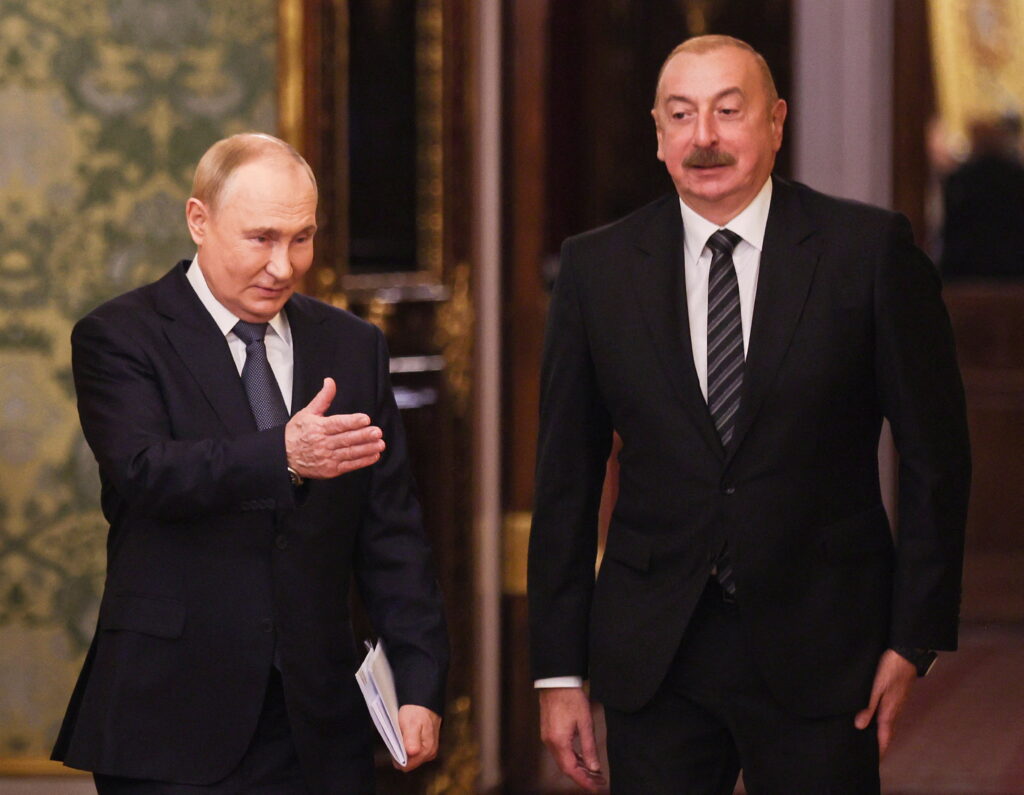Russia’s attempts to broker a peaceful settlement to the conflict in Syria have generated quite a lot of hype in recent months. But let’s try and cut through the spin: the Syrian Constitutional Committee, which was founded in early 2018 after the Syrian Congress of National Dialogue in Sochi, is nothing more than a white elephant. The committee, which was to develop a new constitution, recently started work in Geneva under UN auspices almost two years after its creation. If it is superfluous, then that is not by chance but by design — due to Russian involvement. Nonetheless, there is a chance that the committee could become something genuinely useful, but only if Moscow learns to work with other partners beyond its allies, the regime of Bashar Al-Assad.
Plans for a political settlement to the conflict in Syria were outlined by the UN Security Council’s Resolution 2254. This resolution closely echoes the Geneva communique of June 30, 2012, which stated that any settlement required a ceasefire, the establishment of a transitional government, and free and fair elections. However, dialogue between the opposition and the regime in Geneva has failed at every turn. The government delegation from Damascus has deliberately delayed negotiations and refused to sit at the same table with its opponents. That approach has forced UN representatives to sit and talk with each side separately, which in turn has enabled Moscow to take control of the political settlement process. Firstly, Moscow organised the Astana format of peace talks, held in the capital of Kazakhstan since 2017. Next came the talks in Sochi in January 2018, at which the formation of the constitutional committee was announced.
The Syrian Constitutional Committee comprises 150 people: 50 representatives of the opposition, 50 of the government, and a further 50 from civil society. Problems have arisen over the latter category: the government has attempted to push for Baathists to be represented within the civil society group, and has refused to compromise. This intransigence led to the UN Special Envoy for Syria, Staffan de Mistura, to resign before a final decision on the creation of the committee had even been reached. The Italian diplomat’s successor is Geir Pederson from Norway. Pederson appears to have had more success: he has not only managed to broker an agreement on the final list of delegates, but also launched the committee’s work in Geneva on October 30, overseen by two co-chairmen (head of the governmental delegation Ahmed Al-Kuzbari and head of the opposition delegation Hadi Al-Bahr.) Furthermore, a working group of 45 people has been created to optimise the meetings, comprising 15 representatives of the Syrian government, 15 representatives of the opposition’s negotiation commission, and 15 representatives of Syrian civil society. The working group’s decisions will either be approved by consensus of the constitutional committee (a utopian idea), or by a majority of 75%.
It sounds great. But the devil, as always, is in the details. The essence of the Syrian regime’s delegation and its goals are completely clear: its head Amal Yazigi was even replaced by the Syrian government at the very last minute due to fears that he was not sufficiently loyal. Shortly after the first meetings, opposition media outlets discovered that several people on the government delegation’s list were not only connected to the secret services, but had also directly participated in arrests and torture in the past. This information has also been confirmed by Swiss sources.
As for the other groups in the constitutional committee, it follows that the opposition should generally be hostile to Assad while civil society representatives should be neutral. But is that really the case?
In fact, on the eve of the first meeting, three representatives left the civil society list. It is known that two of them were motivated by fears for the safety of their relatives living in territories controlled by the Syrian government. This fact remained almost unnoticed by English language and particularly Russian language media; the UN quickly found replacements, but chose not to publicise the incident. According to some sources, the Syrian security services are attempting to intimidate civil society representatives by threatening their relatives and seizing their property. In this way, they hope to secure their loyalty.
Indeed, it is probably significant that the plane which flew members of the committee from Damascus to Geneva transported not only 29 members of the civil society delegation, but also seven opposition representatives: three from the National Coordination Body for Democratic Change (NCB) and four from the Moscow Platform. This is a bought opposition connected to the Syrian government’s intelligence services. The leanings of the NCB are a little more ambiguous but it could be indicative that its headquarters are located in Damascus. How did an opposition like this end up on the constitutional committee?
That process began in November 2017, when a three day conference was held in the Saudi capital of Riyadh at the same time as the first ever one day summit between Russia, Turkey, and Iran concerning Syria. Moscow officially praised the efforts of Saudi Arabia to unite the Syrian opposition in preparation for political negotiations in Geneva and the drafting of a new Syrian constitution. Russia’s delegation, headed by the president’s special representative for Syria Alexander Lavrentyev, even took part in the conference.
What explains Moscow’s interest in the meeting in Riyadh?
In my opinion, this can be explained by the fact that Saudi Arabia had not only removed opposition figures tied to Qatar (Riyadh’s blockade of its neighbour had only just begun at the time), but also with the crisis in Yemen. Riyadh had been able to merge the most hardline demanders of Assad’s departure from Syrian politics. As a country which had played an important role in preserving the Syrian government’s hold on power and a strong geopolitical player, Russia was able to impose its own rules of the game. Moscow was aided here by Washington’s lack of a clear agenda for Syria, the crisis between Saudi Arabia and Qatar, and the general deterioration of the situation in the Persian Gulf region.
As a result, the Syrian negotiation commission (an opposition group of 36 people created after the second round of talks in Riyadh; i.e. before the constitutional committee in Geneva had even been formed), came to include five members of the NCB, several independent members loyal to Damascus, and up to four representatives of the «bought» Moscow and Cairo Platforms — opposition groups which were initially very friendly towards Moscow and the Syrian regime. This occurred alongside a decrease in the number of representatives of the armed opposition, which had just seven representatives on the negotiation commission. Even at this time, it was clear that these individuals were able to block decisions taken by the opposition delegation which might prove inconvenient for the Syrian government.
Moscow’s ultimate goal became clear after the congress in Sochi, which laid the foundations for the constitutional committee. Namely, Moscow aims to start a political settlement to the Syrian conflict by sloping the playing field to the advantage of the government. To this end, the opposition has been gradually fragmented with every successive summit in Astana; de-escalation zones have weakened its position, as have military operations during the protracted pauses between different rounds of peace negotiations. Meanwhile, representatives of the armed opposition (such as the 13th division of the Free Syrian Army, Faylaq Al-Sham, and several others) who flew to the Sochi congress on Ankara on a government plane as part of a delegation from Turkey, demanded the removal of the symbols of the Syrian Arab Republic from any forums for neutral dialogue (i.e. the removal of Baathist flags from the summit’s symbols and the remaking of name badges.) Opposition members spent the night at Sochi airport in protest, but they were unable to resolve the situation to their satisfaction by the time talks began. As a result, the armed opposition was essentially absent from the event, and the opposition’s role was given over to puppet organisations such as the Moscow Platform’s Qadri Jamil and the Astana platform’s Randa Kassis, alongside the NCB and others.
Delegates to the Sochi summit then made an announcement about the Syrian constitutional committee, which they argued had in essence taken on the role of a transitional government. This effectively allowed for the circumvention of UN Resolution 2254. Thus, while Turkey was able to get 22 real opposition members into the delegation, many of these figures had long since lost their authority on the ground; their factions no longer control anything in Syria, and if they do, it is often only in those zones of influence which Turkey received through bartering with Russia.
It is clear that such a situation has nothing to do with real reform, and everything to do with preserving the Assad regime’s rule with virtual no changes. The general war-weariness of both Syrian and international parties to the conflict has played a large role in enabling this. Meanwhile, repression against «repatriates» has not ceased. In fact, it has expanded and intensified against the opposition; those former opposition fighters who «reconciled» with the Syrian regime, but refused to fight as part of the 5th Assault Volunteer Corps (which was for some time commanded by Russian generals and officers of various ranks) are now facing fabricated criminal charges. There are also hopes that, with this approach, the Syrian regime can slowly be reformed from within, gradually expanding Moscow’s influence among the regime’s military and political elite — at the expense of Iran. At the same time, Moscow now has a chance to push for some real changes alongside its masquerade of a peace settlement. That is why the Assad regime is doing all it can to undermine the constitutional committee, even in its current form, in which it has the upper hand. In short, Damascus fears any reforms and any further opposition participation in the country’s post-war political life.
Furthermore, the Kremlin’s approval for the creation of another «safe zone» in Syria will strengthen the position of the National Syrian Army, a pro-Turkish formation which has united almost all the remaining units of Syria’s moderate opposition under its wing. The return of Syrian repatriates from Turkey to these territories could give the National Syrian Army some serious clout in political negotiations to come. In such circumstances, the work of the constitutional committee will no longer be an empty formality; the opposition will represent control of an area in safe zones on both sides of the Euphrates with resources and a population. Turkey’s actions not only fit into a longer process of returning Syrian refugees to the war-torn country (something for which Moscow has actively lobbied), but also a process of eliminating an ethno-religious imbalance. This could also reduce the degree of religious radicalism, due to Turkey’s reconstruction of areas of Syria under its occupation and conclusion of long-term contracts to restore their damaged infrastructure.
However, the feasibility of this scenario depends on several questions. In the long run, will Moscow ever permit the Syrian opposition being given a real voice in Syria’s political life? And will Moscow be ready to give guarantees for a frictionless integration of the National Syrian Army into the armed forces of post-war Syria?










